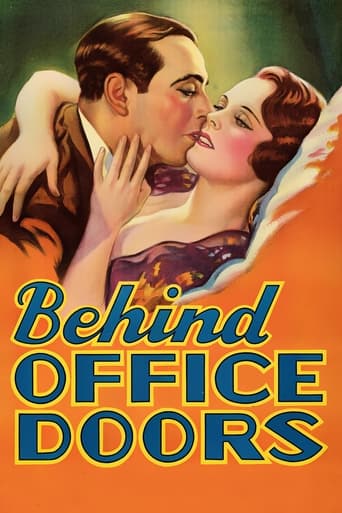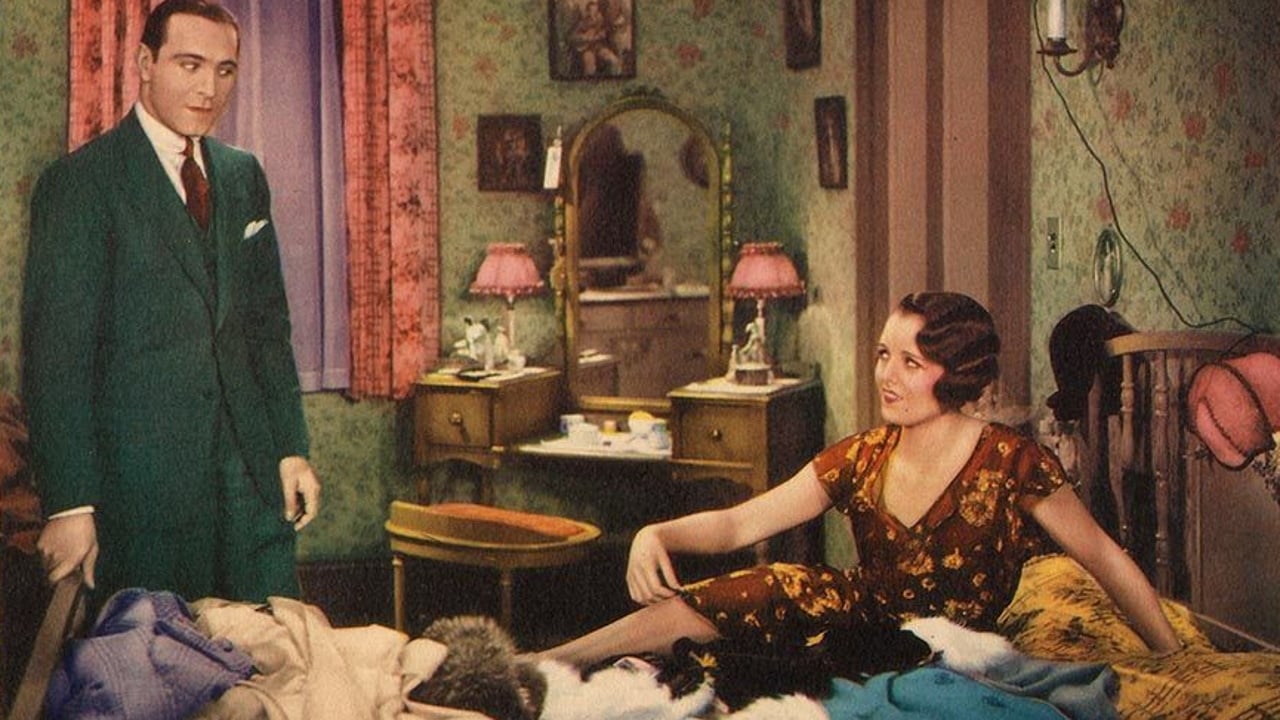marcslope
A good vehicle for Mary Astor, who always radiated intelligence and beauty; she's stunningly gorgeous as a secretary who's smarter than her boss, Robert Ames, and helps him to the presidency of a paper company while being utterly neglected. The sexism of the day is annoying--she should really be president--but the role allows Astor a lot of range, she gets to do both funny and poignant, and she's never less than a great camera subject. Ames, a major leading man who died not long after this, doesn't reveal any great appeal or ability, and the ending's never much in doubt. But it's one of the better early-talkie looks at the great Mary.
kidboots
.....especially if she is surrounded by such dim witted men!!!! First of all there's Ronnie Wales (Ricardo Cortez) - he is attracted to Mary but will never divorce his wealthy wife as she controls the money. Then there is the man Mary (Mary Astor) really loves - Jim Duneen (Robert Ames) an idiot par excellence. He's crass, vulgar, always drunk and attracted to dopey flappers - which is why he is not interested in Mary. She is a super efficient girl Friday for Ritter and Co. and Jim is their top salesman. When their boss retires, due to ill health, he takes on board Mary's suggestion that Jim will be perfect to fill his place. He more than fulfills the faith Mary has in him - but does he really??? Although he takes all the credit, it is really Mary's efficiency and business sense that keeps the company at the top. She also teaches him how to talk and how to dress until he catches the eye of Ellen (Catherine Dale Owen), a wealthy society woman.Was Catherine Dale Owen the worst actress of that time - or was there another one!!! She said her lines as though she was playing in a 1929 talkie - not one from 1931!! Slowly, deliberately and enunciating every word. There was a scene between her and Mary Astor (one of the best actresses) - Mary was her beautiful, natural self but Catherine was all "Grand Dame". As John Springer once wrote - "Perhaps it wasn't John Gilbert's fault that he seemed ludicrous in his first talkie, after all, his leading lady was Catherine Dale Owen"!!!Ellen finds out that Mary loves Jim and forces her to leave the company - of course the place falls apart. The secretary that Jim has installed (Edna Murphy), one of his flings, almost burns his house down by falling asleep with a lighted cigarette!!! The ending is very disappointing but apart from that, the movie has lots of pre-code moments. When Mary rings Jim at midnight, they both happen to be "entertaining" and when Mary goes to Atlantic City with Ronnie, the complete casualness, as they both lounge about in peignoirs and smoking jackets!! There is one scene that makes the movie worthwhile - it is when Mary resigns and finally sees her path in life clearly (or so she thinks). She puts all her energy into this one little speech and she is just great!!!I like Mary Astor so much. In a sea of platinum blondes she stood out like a beacon with her calm dark beauty and poise. That's why the ending was so silly - Mary was far too smart to make the decision she did. Leaving her "damsel in distress" period with the silents, she entered the thirties with a variety of roles. She was always perfect as the quiet dependable wife, friend and secretary with ripples of sensuality just below the surface. Robert Ames, who seemed to excel a bit too much as the "boozey boss", was an actor that Radio Pictures had a lot of faith in, but in real life he was a hopeless alcoholic who died the same year (1931) of the D.T.s.Recommended.
MartinHafer
I know I have seen this film before or at least one very, very similar to this. However, for once, IMDb is of no help at all using its keywords and it shows nothing in regard to movie connections. If you know what the remake for this was titled, let me know.For those who don't know what the term "Pre-Code" refers to, this is a film made mostly in the early 1930s--up to 1934. While there was a Production Code that supposedly controlled inappropriate content in American films, it was rarely enforced and the films of this era were occasionally very risqué--even by today's standards. While the films following the adoption of a strengthened Code in 1934 were quite tame, pre-code films had some shocking moments such as nudity (yes, Grandpa and Grandma were NOT as prudish as you'd imagine), adultery, homosexuality and cursing. And, occasionally sin was not just condoned but was rewarded by the end of the film! "Behind Office Doors" is clearly a pre-code film in its sensibilities--though it's not as shocking as "Red-Headed Woman" (but what is?!). The film features some adulterous situations, 'free love', a man smacking a woman on the rear (plus she isn't his wife), sexy lingerie, a smart and conniving career girl who smokes and drinks and likes men (Mary Astor), references to hashish, wild parties and lots of sexually-charged banter! However, and this is very odd, but midway through the film the pre-code trashy elements mostly disappear. The resulting film is very good but had one glaring problem that irritated me a tiny bit.The film begins with Astor meeting a handsome guy (Ricardo Cortez). He is instantly smitten with her, but her mind is focused on an executive at work (Robert Ames). Plus, she learns that Cortez is already married. For much of the movie, Mary works to make the man she's infatuated with (Ames) and pulls strings to make him successful. Oddly, despite being successful, Ames is a bit of an idiot. First, he doesn't recognize all the times Astor manipulates him to make him a success. Second, she's pretty and devoted--but the fool doesn't appreciate her or recognize that she loves him. In many ways, Astor is quite the sap and Ames clearly doesn't deserve her. Even when it's obvious Ames is chasing other women, Astor hold out hope that somehow he'll recognize her and marry her. In fact, I had a hard time loving the film because Ames just wasn't worth it--I wanted to see her find someone other than him or Cortez! The film truly is the ultimate in self-sacrifice and as a result Astor is a human doormat--too much so. Still, despite this, the film is well made, entertaining and worth seeing--I just wished they'd made the relationship between Ames and Astor less one-sided and ridiculous.By the way, my favorite line in the film was "You don't love me for my body alone...". Now THAT'S pre-code!
glmoritz
I tivo'd this on Turner Classic just because it was pre-code and sounded interesting. When I got around to watching, I noticed that the "critique" gave it one and a half stars on a four-star scale. I started watching with trepidation -- even old movies can be bad movies -- but I quickly got engaged in the story and Mary Astor's performance as the business brains behind a simple salesman's rise to success. Not a truly great movie -- too predictable -- but certainly better than advertised. And I would have liked to have seen more of Ricardo Cortez as the man who appreciates Mary but won't give up his wealthy wife. I'd recommend giving it a look just to appreciate Astor and what a long way we've come, baby.


 AD
AD



